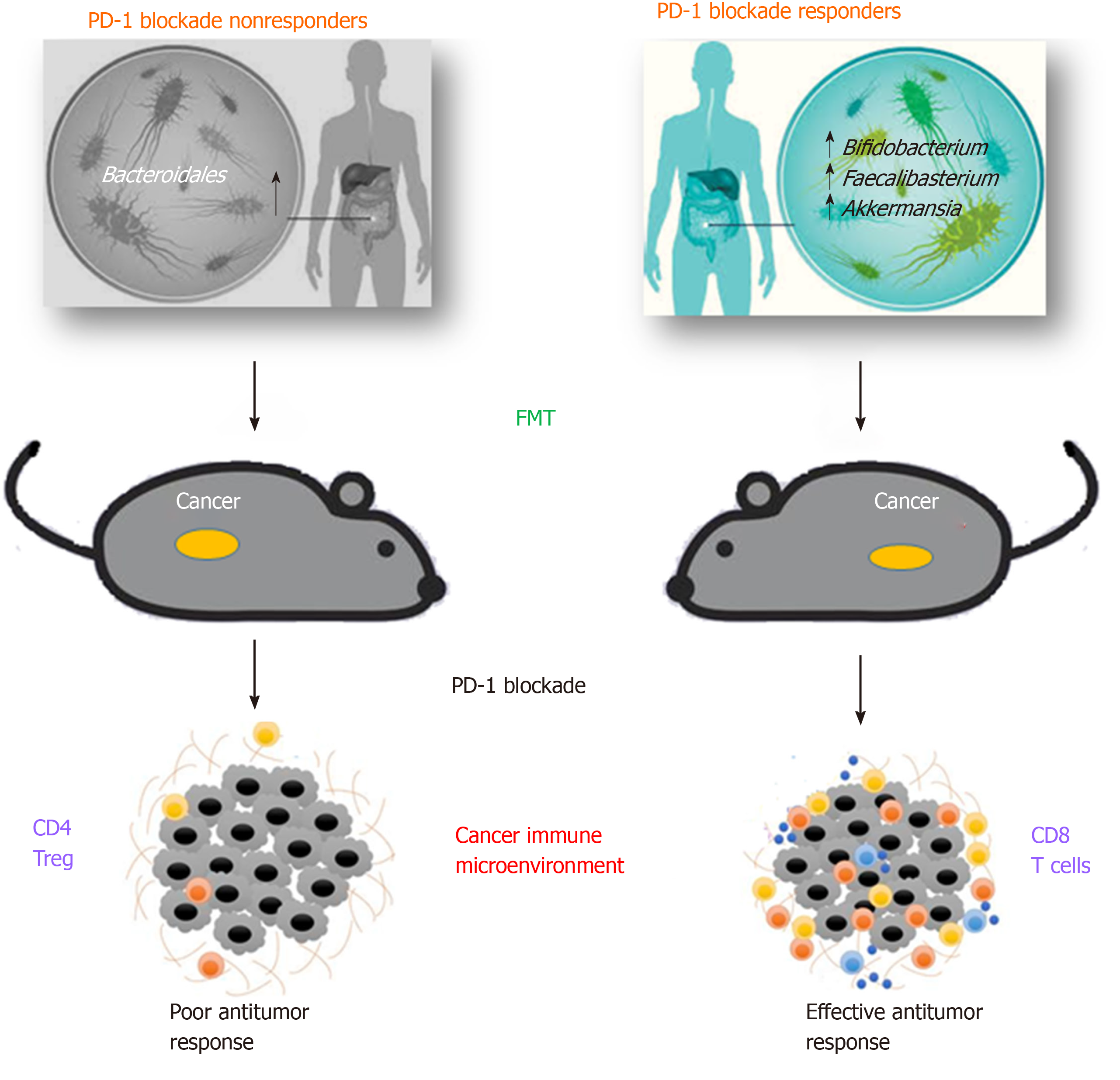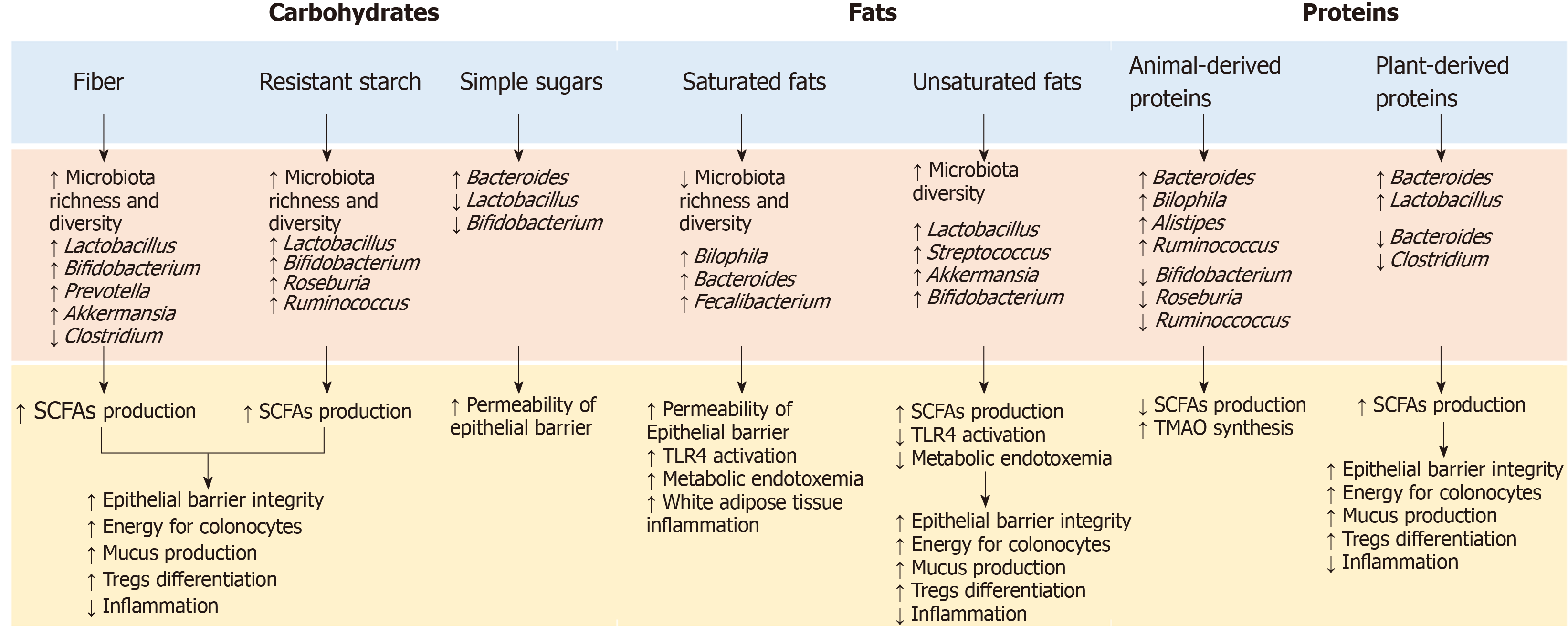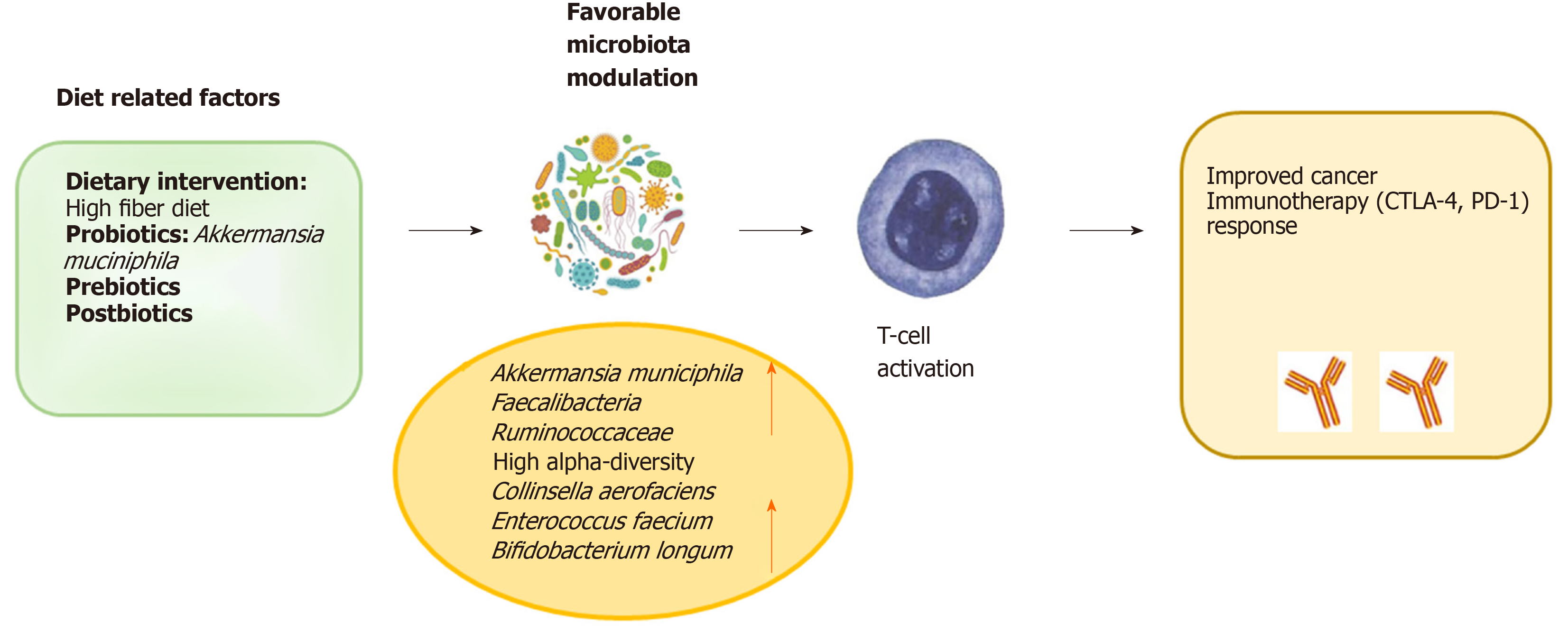Copyright
©The Author(s) 2020.
World J Gastroenterol. Sep 7, 2020; 26(33): 4919-4932
Published online Sep 7, 2020. doi: 10.3748/wjg.v26.i33.4919
Published online Sep 7, 2020. doi: 10.3748/wjg.v26.i33.4919
Figure 1 Gut microbiota impact on the efficacy of programmed cell death protein 1 blockade.
Specific gut microbiota profiles correlates with response to programmed cell death protein 1 (PD-1) blockade in tumor patients. Fecal microbioma transplantion (FMT) from responders into mice, improve responses to anti-PD-1 treatment and correlated with increased anti-cancer CD8+ cells in the tumour environment. Mice receiving FMT from non-responders’ patients did not respond to anti-PD-1 therapy, and tumour microenvironment is enriched of immune suppressive CD4+ regulatory T cells. PD-1: Programmed cell death protein 1; FMT: Fecal microbioma transplantion; Tregs: Regulatory T cells.
Figure 2 Relationship between dietary factors, microbiota and immune response.
SCFAs: Short-chain fatty acids; TLR4: Toll-like receptor 4; TMAO: Trimethylamine N-oxide; Tregs: Regulatory T cells.
Figure 3 Potential strategies to shaping the gut microbiota through the “food- gut axis” and enhance immune checkpoint inhibitors’ response.
In order to obtain a favourable microbiota modulation, adjunctive therapeutic strategies, as preparative regimens (via prebiotics, prebiotics, postbiotics or dietary supplementation) could be considered as upcoming ways for improving the efficacy of immunotherapy response. PD-1: Programmed cell death protein 1.
- Citation: Russo E, Nannini G, Dinu M, Pagliai G, Sofi F, Amedei A. Exploring the food-gut axis in immunotherapy response of cancer patients. World J Gastroenterol 2020; 26(33): 4919-4932
- URL: https://www.wjgnet.com/1007-9327/full/v26/i33/4919.htm
- DOI: https://dx.doi.org/10.3748/wjg.v26.i33.4919











